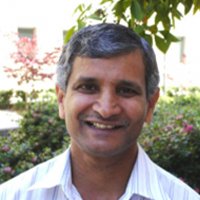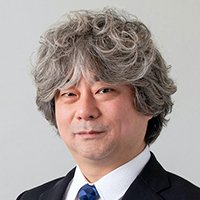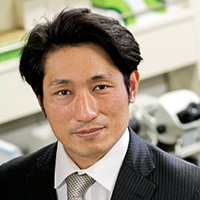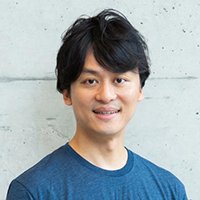
Life Science Innovation Network Japan has hosted Special Symposiums on life science-related topics in Tokyo in partnership with UC San Diego since 2018. The symposiums invite academic and industry leaders to discuss the advances in the topical fields and provide the audience with opportunities to learn about the frontiers of research and their implications for translational work. We have hosted symposiums on microbiome, systems biology, nano medicine, and bio-manufacturing.
Digital technology is rapidly changing how we work and how we live in this modern society. In the field of healthcare, new health systems are about to emerge where artificial intelligence-enabled tools and the latest technologies are integrated into clinical care, operations, and strategy to benefit every patient. According to The Economist, the world could lack 10 million healthcare workers by 2030, around 15% of today’s workforce. AI promises to cut medical costs by assisting or replacing workers, improving productivity while improving care.
The upcoming symposium on “Digital Health Care Transformation” will discuss the vision for the data-enabled health system, both in the US and Japan, and share some recent examples of innovation. A panel discussion will look into the opportunities that may arise in the short term while addressing barriers to overcome.
For past UC San Diego-related events and reports, please click here.
*Language:English /Partialy Japanese(English-Japanese simultaneous interpretation available)
*English captions are available (you can choose to turn them on or off).
*Please note that LINK-J and UC San Diego are not responsible for any errors or omissions in the captions.
How to use captions: Managing and viewing closed captioning
Managing and viewing closed captioning
Date and Time:
Wed, May 29th, 2:00pm - 7:00pm (JST)(6:00pm -7:00pm Networking at venue)
Venue:
In-person:Nihonbashi Life Science Building Room 201
- Networking:Nihonbashi Life Science Building 10F Lounge
- Virtual:Zoom Webinar
Register here!
(Opens an external site)
Registration Fee
Online participation: Free
On-site participation: Free for members, 2,000 yen for non-members
※ For LINK-J supporters, LINK-J members, and press, please contact LINK-J to receive a discount code.
Click ”Register here!” to open an external site.
Program
| JST | Agenda |
| 2:00-2:15pm | Opening Remarks - Akihiko Soyama, CEO of LINK-J & Albert P. Pisano, Dean and Distinguished Professor, Jacobs School of Engineering / Special Advisor to the Chancellor University of California San Diego |
| 2:15-3:00 | Presentation -“Transforming Healthcare Delivery with AI and Remote Monitoring” Dr. Chris Longhurst, Chief Medical Officer & Chief Digital Officer, UC San Diego Health / Associate Dean, UC San Diego School of Medicine |
| 3:00-3:30 | Presentation -“Research and development platform toward data-enabled health system” Dr. Soichi Ogishima, Tohoku University |
| 3:30-3:40 | Break |
| 3:40-4:10 | Presentation - "Life in Your Hand: Portable Electronic Molecular Biosensors for Global Health and Security" Dr. Ratnesh Lal, Professor of Bioengineering, Mechanical Engineering, Material Science & Engineering, UC San Diego Jacobs School of Engineering |
| 4:10-4:40 | Presentation - “Brain Measurement Technology Using Flexible Electronics” Dr. Tsuyoshi Sekitani SANKEN, Osaka University |
| 4:40-5:10 | Presentation - “Navigating Safety and Quality of AI-powered Medical Devices - A real-world case study of a Japanese med-tech company” Takehito Matsuba Citadel AI Inc. Chief Operating Officer |
| 5:10-5:20 | Break |
| 5:20-5:55 |
Panel Discussion |
| 5:55-6:00 | Closing Remarks - Akihiko Soyama and Miwako Waga,Senior Director of International Innovation Outreach Office of Research and Innovation UC San Diego |
| 6:00-7:00 | Networking Reception |
Abstract
Dr. Chris Longhurst's talk
Healthcare AI tools hold tremendous promise to enhance delivery of medical care, especially in combination with remote monitoring. In this presentation, Dr. Longhurst will share experiences and lessons learned from implementing different AI models in different patient care environments with a focus on improving quality and safety.
Dr. Ratnesh Lal's talk
Our healthy living depends upon a complex physiological control over response to internal as well as external stimuli. There are limited preventive measures and treatments for pathologies, diseases, and emergent infections. Our best option currently is an early, simple, and personalized accurate molecular diagnosis as well as an early warning about destabilizing stimuli. Over three decades of working in physics, neuroscience and nano science and technology, Dr Lal’s work has provided foundational paradigm shifting understanding of what causes human diseases, including brain and heart diseases, how to diagnose them non-invasively, and how to deliver therapeutics to specific tissues, cells, and organs under remote control. Dr Lal will describe how his personalized electronic nano-biosensors can be used at home or in-clinic to seamlessly diagnose diseases and pathologies, including dementia, cancer, heart diseases, infections, and emerging pandemics precisely, accurately and with privacy. The results can be transmitted wirelessly, and in extenuating circumstances the biomarkers testing can be administered remotely by cell phone video. Electronic data from single molecular interactions which is the hallmark of our undertaking is essential for any machine learning and AI-based predictive global health management.
Dr. Sekitani's talk
In this presentation, I would like to introduce the research and development of Brain-Machine-Interface (BMI) using flexible and stretchable electronics characterized by softness and its social implementation efforts. Specifically, I will report on the development status, application examples, challenges and future prospects of BMI technology (integrated BMI system), which consists of four types: invasive, minimally invasive, non-invasive and non-contact. In this R&D, flexible and stretchable electronics using nanomaterials and nano-processes technologies was used to reduce the degree of invasiveness and to improve the signal quality of BMIs. Based on this basic technology, R&D and social implementation of intracranially implanted, intravascularly implanted, wearable, and non-contact BMI are underway, and I would like to introduce examples of use in collaboration with medical institutions.
Part of this research was supported by JST Moonshot Goal 1 (JPMJMS2012).
Mr. Matsuba's talk
The EU AI Act, the world's first comprehensive AI regulation, is gearing up for implementation. Meanwhile, the Biden Administration of the US issued an Executive Order for AI safety, sparking debates on trustworthy AI worldwide. Ensuring AI safety is a top priority for medical device manufacturers, considering both patient safety and corporate risk management.
In this session, Citadel AI, a global leader in trustworthy AI technology, will discuss how they evaluate the quality of AI-powered medical devices and share real-world examples of their technology in action. Citadel AI will introduce a case study of a Japanese med tech company making strides in developing AI-powered medical devices using Citadel AI’s technology.
Biography
| Photo | Biography |
 |
Chris Longhurst, MD, MS Christopher Longhurst MD, MS, is the chief medical officer (CMO) and chief digital officer (CDO) at UC San Diego Health. This dual, complementary role provides leadership to medical staff, ensuring that standards and protocols are in place to provide the highest quality of care to patients. He also serves as an associate dean at the School of Medicine, overseeing and aligning our education and research missions within the clinical environment, and leading our journey to become a highly reliable, learning health system.As CMO, He is also a key faculty member in the Departments of Biomedical Informatics and Pediatrics in the UC San Diego School of Medicine, maintaining an active clinical practice as a newborn hospitalist and pursuing scholarship in care quality, patient safety, and health informatics. Before joining UC San Diego Health, Dr. Longhurst served as chief medical information officer for Stanford Children's Health. He led strategic efforts to improve children's health and provider workflow using information technology. He founded and led the nation's first accredited clinical informatics fellowship at Stanford, where he was a clinical professor of pediatrics and biomedical informatics. He also staffed the quality committee of Stanford's hospital board and facilitated national quality improvement collaborative work. He is the author and co-author of many publications on using technology and data to improve quality of care. Dr. Longhurst is an elected fellow of the prestigious American College of Medical Informatics. |
 |
Ratnesh Lal, PhD Lal is a professor of Bioengineering, Mechanical Engineering, Material Science & Engineering, and Co-Director of Center for Excellence in Nanomedcine and Engineering at UC San Diego. |
 |
Soichi Ogishima 東北大学高等研究機構未来型医療創成センター 教授。東北大学東北メディカル・メガバンク機構 医療情報ICT部門 ゲノム医科学情報学分野/情報セキュリティ分野 教授。2000年東京大学工学部計数工学科卒業、東京医科歯科大学大学院修了(博士(医学))。同大学助手・助教、ハイデルベルク大学 定量システム生物学研究所(BIOQUANT) 客員研究員を経て、2012年5月より東北大学 東北メディカル・メガバンク機構 講師、准教授、2018年4月から現職。専門はバイオインフォマティクス、ゲノム医療情報学。日本バイオインフォマティクス学会 理事、情報計算化学生物(CBI)学会 執行部会員・評議員、日本オミックス医学会 理事、日本医療情報学会 国際委員会委員、日本メディカルAI学会 評議員。 |
 |
Tsuyoshi Sekitani Tsuyoshi Sekitani is a Professor in The Institute of Scientific and Industrial Research (SANKEN), Osaka University. He received his Ph.D. from the Department of Applied Physics, School of Engineering, at the University of Tokyo, Japan, in 2003. From 2003 to 2010, he was an Assistant Professor, and in 2011, he was an Associate Professor in the School of Engineering at the University of Tokyo. In 2014, he was made a Full Professor in The Institute of Scientific and Industrial Research at Osaka University. In 2017, he was awarded as the title of Osaka University Distinguished Professor. From 2019, he is playing a leading role in the research intensification of Osaka University as an Executive Assistant to the President of Osaka University. |
 |
Takehito Matsuba Previously, Takehito led the launch of Google Health’s Japan business and the first joint research project on AI-assisted breast cancer screening with a leading cancer hospital in Japan. Prior to Google, he worked with Mitsubishi Corporation where he led investments, M&A, and new business development in the healthcare industry, and served as Director of North American Healthcare Business in the Bay area. He obtained an MBA from MIT Sloan School of Management. |
Application deadline
On-site participation: Until 9:00 a.m. on May 27, 2024 (Monday)
Online participation: Until 6:00 p.m. on May 29, 2024(Wednesday)
Capacity
In-person: 70 people (First come first served basis)
Virtual: 1000 people
Organizer
Organizer:LINK-J
Co-organizer:University of California San Diego
Contact
contact@link-j.org



